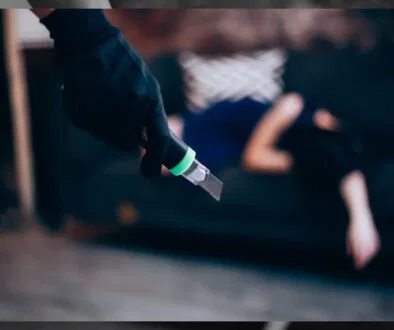Voluntary Vs. Involuntary Manslaughter: What’s the difference?

Published June 2, 2024
There is a critical difference between voluntary and involuntary manslaughter. In this article, we’ll discuss each of them in detail. Let’s waste no more time and educate ourselves about the topic.
Voluntary Vs. Involuntary Manslaughter: What’s the difference?
Involuntary Manslaughter
The term involuntary manslaughter is used to acknowledge the unintentional killing of a person. It might stem from criminal negligence, recklessness, or misdemeanor. The person who commits it does not want the victim to die. For one, a person who drives under the influence of alcohol may hit and kill a pedestrian, although their passing was not his intent.
Additionally, crimes like theft along burglary can result in these charges. For instance, if a thief walks into an establishment to rob and not to kill, but one customer suffers a heart attack and dies from shock, the culprit could be charged with involuntary manslaughter and robbery.
Elements That Constitute the Offense
A person is guilty of involuntary manslaughter if the following three criteria are met
- The defendant committed an act that directed the death of a person
- The defendant knew that his action might endanger lives
- The act was inherently dangerous and was done with a total lack of worry for human life.
Voluntary manslaughter
Voluntary manslaughter is intentional killing. Yet, the person who commits the crime has no prior intention to kill. The murder arises in the “heat of passion.” The situations that lead to the crime would cause an individual of rational judgment to become mentally or emotionally disrupted. In the absence of such causes, the killing could be acknowledged as first or second-degree murder.
Voluntary manslaughter varies from involuntary manslaughter; its definition anchors on the state in which the crime occurs. On the other hand, involuntary manslaughter happens when a person dies due to recklessness or irresponsibility of the dependant.
What Are Examples of Voluntary Manslaughter?
1. Heat of passion
Scenario: A person walks in on their spouse in bed with another person and, in a sudden fit of rage, kills one or both of them.
Explanation: The intense emotional disturbance caused by the discovery provokes the person to act violently without rational thinking.
2. Mutual combat
Scenario: Two individuals engage in a heated argument that escalates into a physical fight. During the altercation, one of them delivers a fatal blow.
Explanation: Both parties were willingly involved in the confrontation. The death occurred in the course of the fight.
3. Extreme emotional distress
Scenario: A parent finds out about the long-term abuse of their child. In an uncontrollable emotional reaction, they kill the abuser.
Explanation: The intense distress and provocation from discovering the abuse direct the parent to act violently.
4. Provocation
Scenario: A person is subjected to continuous verbal abuse and threats by a neighbor. One day, the neighbor physically attacks them, and in the ensuing struggle, they kill the neighbor.
Explanation: There is an ongoing provocation, and the immediate physical attack contributes to the diminished capacity to control their actions.
Classification and Punishment for Voluntary Manslaughter
Voluntary manslaughter is a Class D felony. It requires an active sentence of imprisonment, even for a defendant with no prior record. It is classified as a serious criminal offense but is considered less severe than murder due to the presence of mitigating circumstances.
The punishment for voluntary manslaughter varies depending on the jurisdiction. It generally includes significant penalties such as imprisonment and fines. In the US, sentencing varies by state. Still, the typical sentence in many jurisdictions might be between 5 to 20 years.
The fines can be substantial. It is decided based on the case’s specifics and the jurisdiction’s laws.
Classification and Punishment for Involuntary Manslaughter
Involuntary manslaughter is a Class F felony. The punishment for it generally includes imprisonment, fines, and probation. The severity of the sanction reflects the lack of intent to kill but considers the severe repercussions of the perpetrator’s reckless or negligent actions.
Many jurisdictions impose sentences ranging from 1 to 10 years, with the possibility of parole or probation.

ADVERTISEMENT
Frequently Asked Questions About Voluntary vs Involuntary Manslaughter.
What is the difference between intentional and unintentional manslaughter?
Intentional manslaughter occurs when one intentionally kills another person but does so under circumstances that lessen the severity of the crime compared to murder. Unintentional manslaughter occurs when a person causes the death of another person through reckless or negligent actions without any intent to kill or cause serious harm.
What does manslaughter mean, simply?
Manslaughter is a legal term for unlawful killing. It is done without the malice aforethought that defines murder.
What is constructive manslaughter?
Constructive manslaughter, also known as unlawful act manslaughter, is a legal concept where an individual is held responsible for causing death due to committing an unlawful act that is dangerous and likely to cause harm. It is even if they did not intend to kill or cause severe damage.
What is the meaning of culpable homicide?
Culpable homicide is a legal term used to describe an act that results in the death of a person. It is a form of unlawful killing that is considered less severe than murder. The perpetrator may not have intended to cause death, but their actions were reckless or negligent.
Our life is precious and no one have the authority to take it from us. Yet, the cruel reality remains that there are people with ill intentions that cause the loss of one’s life.
Reduce Your Jail Call Costs By Up To 90% Per Minute With GlobalTel
GlobalTel’s inmate calling service lowers jail call per minute rates by up to 90% for jail calls from US facilities. Sign up now and use the special jail call phone number we create for you to eliminate the long distance jail call fees. Try GlobalTel for only $45.99 for 90 days. Make US/domestic and international jail calls at the local rate and stay connected to your incarcerated loved ones for less. Learn more about how to sign up for calls from inmates here.

This Content Is Fact Checked
Our esteemed team of specialists has thoroughly validated the accuracy of this information. Discover further details about the rigorous editorial guidelines for our website here.
ADVERTISEMENT

About The Author
I am Tracy Gorman, a seasoned writer with a passion for crafting content on various subjects. I possess the expertise to delve into any niche and deliver exceptional articles.




